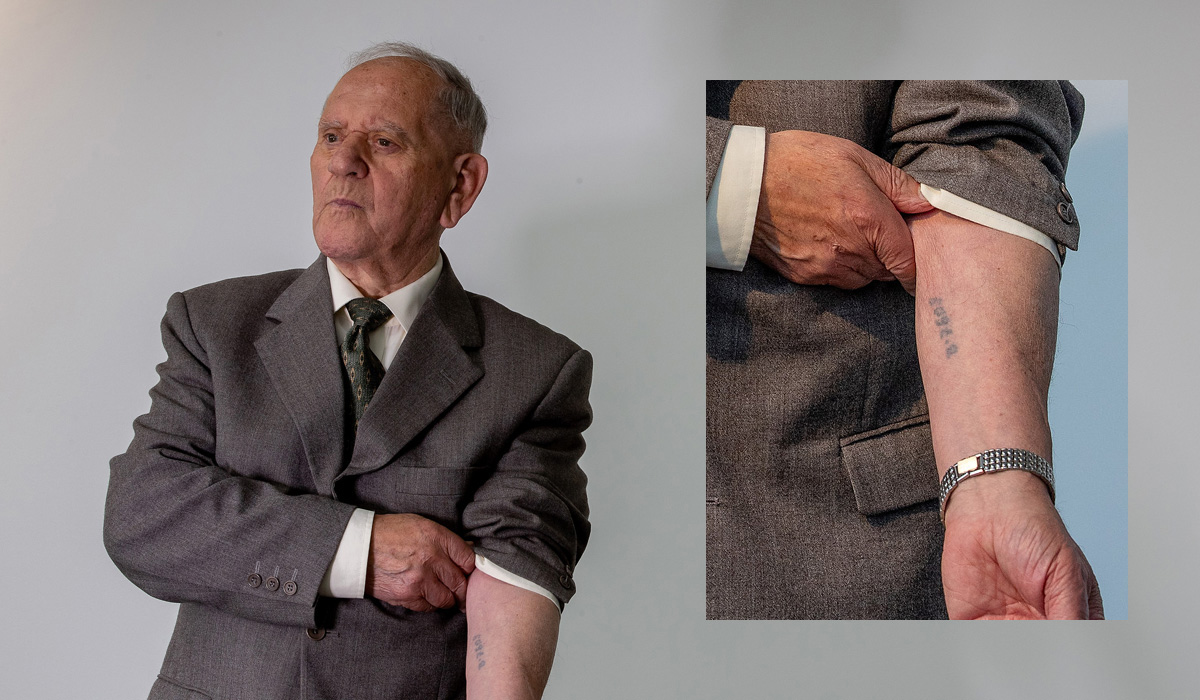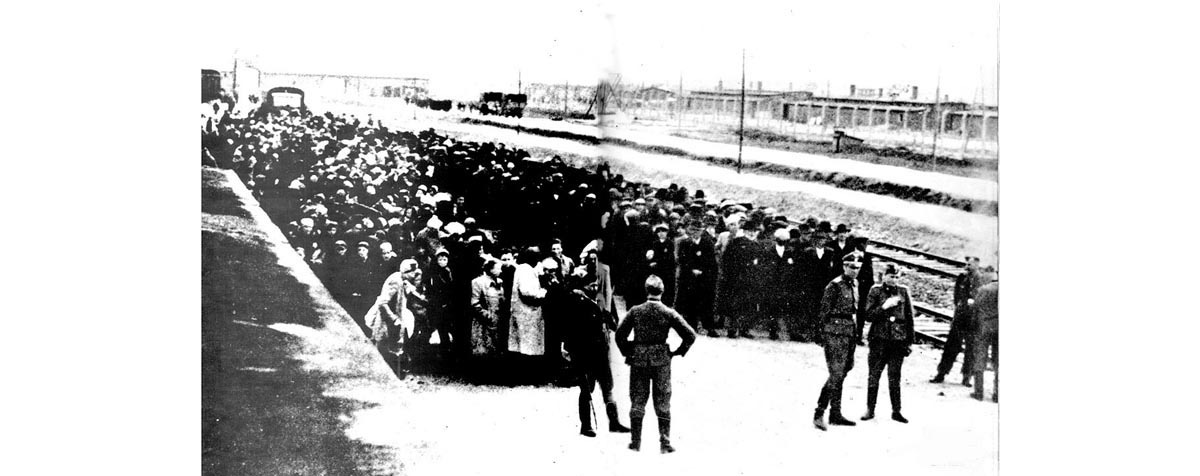Arek Hersh was born in Poland in 1928, but from the age of eleven the Jewish boy was sent by the Nazis to his first concentration camp and eventually found himself in the notorious Auschwitz-Birkenau death camp.
ONE of Yorkshire’s Holocaust survivors told an audience the sad story of how his childhood memories contained hangings, mass murder, cannibalism and watching his friends being beaten to death when he was invited to speak at the Holocaust Exhibition and Learning Centre for the North at the University of Huddersfield.
90-year-old Arek Hersh answered questions from the audience after they viewed a video detailing Arek’s life story and how he escaped from the fate that took so many in World War Two.
The award-winning film entitled Arek documented his return, as an adult, to the places of his childhood “where murder was a way of life” and the audience watched on as they saw Arek revisit the streets of the notorious Lodz ghetto and the infamous extermination camp Auschwitz II known as Auschwitz-Birkenau.
His childhood memories were so shocking that he didn’t talk about his experiences until 1995 when he released his autobiography, A Detail of History, of which he signed copies after the Huddersfield talk.
Arek's arrival at Auschwitz
In this video, Arek and his wife Jean tell the story of Arek's escape from the mass genocide of millions of Jews during World War Two. The story begins with Arek's arrival at Auschwitz from a Jewish ghetto named Lodz and the horrific selection process he witnessed.
- View more of the University's video content via the University's YouTube News Channel.
Arek Hersh’s autobiography is entitled A Detail of History
Arek Hersh was born in Poland in 1928 and was just 10-years-old when his Polish hometown, Sieradz, fell under German occupation. He was eleven when the Nazis kicked down the door of his family home and took him away to his first concentration camp.
Eventually, he was released to return to his ghetto home in Lodz. He recalled his thoughts as he walked away from the barbed-wire fencing: “If ever there was a hell, this is it.”
He was then taken from camp to camp by the Nazis, witnessing some of history’s worst crimes against humanity as he passed through each one. He saw the first experiments with gassing Jews, as the prisoners were rounded up and shuffled into a van which had the exhaust pipe pumping fumes into it.
Within minutes the twenty or so Jews were dead. These memories, said Arek, are “a constant reminder of what human beings can do.”
Eventually, he was sent to the notorious death camp, Auschwitz. As he entered the camp, he noticed that two lines were being formed. One contained the most healthy prisoners, likely to be put to work, whilst the other comprised of the weak. He was in the latter.
Knowing that the Nazis quickly disposed of those they didn’t need, Arek used a moment when the SS were distracted by a commotion further down the line to swap queues. It was a decision that saved his life. Everyone in his first queue was slaughtered, including his first love.
Eventually, as the Russians approached, Arek was taken to Theresienstadt camp. Then, as the Nazis came under increasing pressure from the Americans in April 1945, the prisoners were shipped out once again, this time travelling around in open-top train wagons for a month.
Amazingly, Arek survived by eating grass and cooking the leather from his shoes. He watched as some Russian and Ukranian prisoners of war resorted to cutting the flesh from dead bodies, cooking it in boiling water, and eating it.
He remembers having to deal with the death that surrounded him: “You could see the bodies on each train. We just threw them off and buried them.”
On 8 May 1945, he was liberated by the Russians and by 14 May he was on a Lancaster bomber heading for England. He settled in the UK and made Yorkshire his home with his wife Jean. He later discovered that only 40 people from his hometown survived the war.
Today, Arek continues to visit schools, universities and other organisations to talk about his experience of the Holocaust. He hopes that by doing this he can help young people to build a better world.
- Auschwitz survivor Iby Knill will be talking about her experiences at the Holocaust Exhibition and Learning Centre on 7 April in conjunction with the Holocaust Survivors' Friendship Association in Leeds. For information, please contact helc@hud.ac.uk or call 01484 365301.
More news
Holocaust Exhibition and Learning Centre opens
The Centre is one of only two centres in the UK and will primarily serve the North of England
Holocaust Centre loans concentration camp uniform
The Holocaust Exhibition and Learning Centre welcomes exhibits loaned from the former concentration camps
Holocaust survivor Trude Silman moves audience
Trude was invited to speak at the Holocaust Memorial Day event, organised by the University with the 6million+ charity


